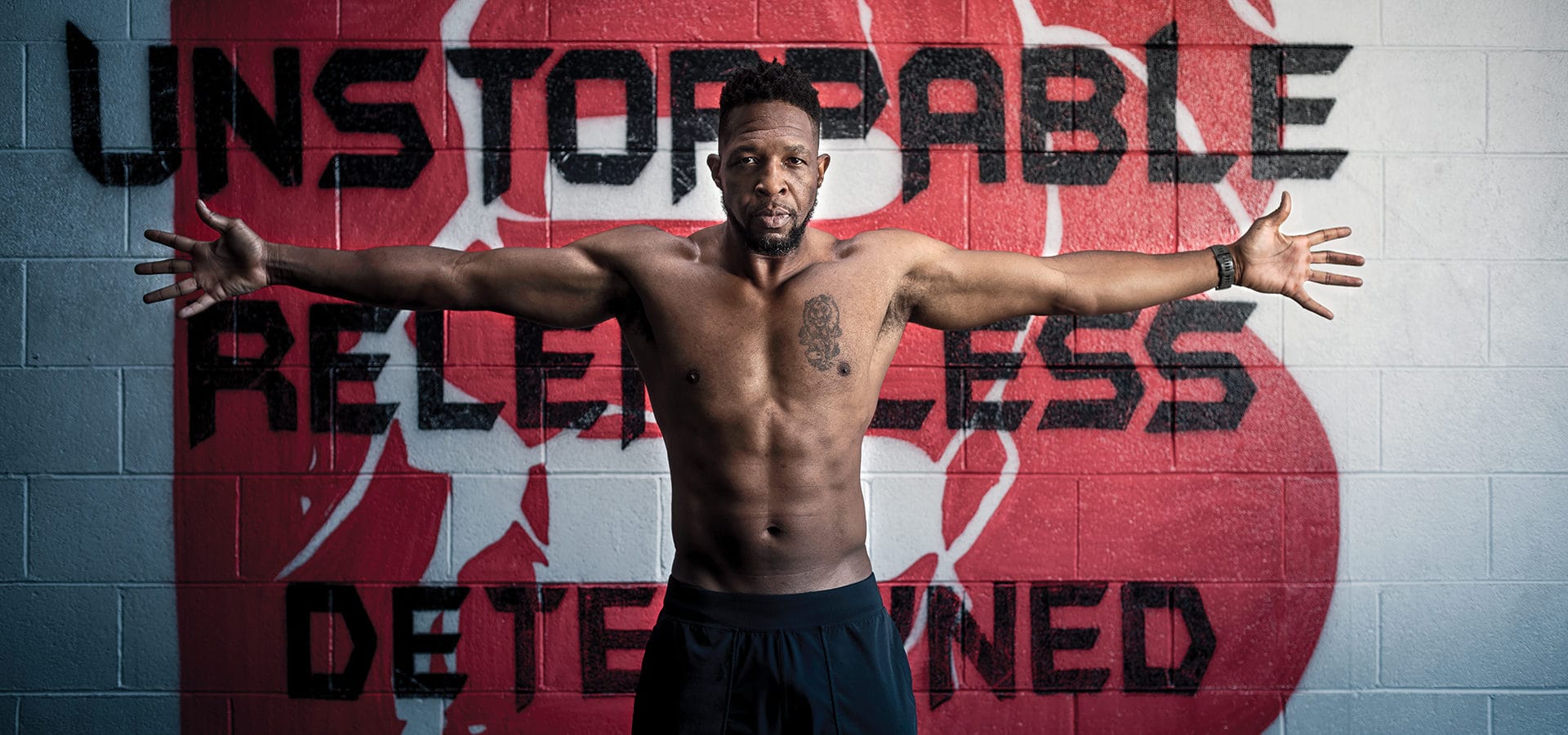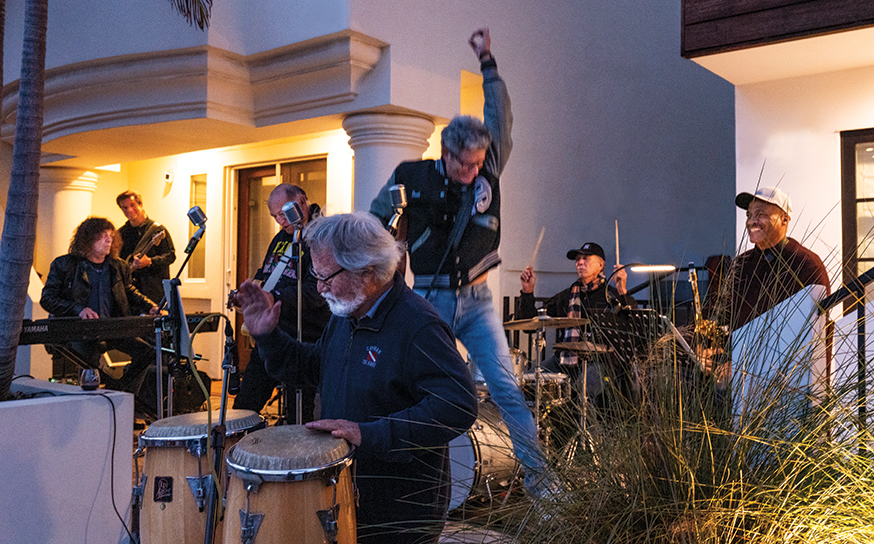Dancer, actor, boxer, trainer, motivator, philanthropist … these are just a few descriptors of the human dynamo that is Cedric Jones. But my favorite way of describing him is much simpler and, in my opinion, most powerful: He is truly kind. Cedric embodies an empathy for people that is borne from the hardships he has endured in his own life, and his generosity is unparalleled.
Cedric grew up in Georgia during the ’70s. He was the class clown at school with big dreams to be an entertainer. He was into theatre, danced ballet and even took up ballroom dancing to hone his craft. At the age of 17 he became a professional dancer, performing with several artists including OutKast and Ludacris.
But he chose L.A. over New York to pursue an acting career, and with very little money made the move. Three months later, unable to pay his rent, he became homeless. Age 22 and on the streets for more than a year, Cedric received an act of kindness from a complete stranger that changed the trajectory of his life.
Cedric heard just two days prior to our interview that the woman who first helped him when he was homeless had died of cancer. “God bless her soul,” he says. “Ethel Smith was her name. She did not know me at all. She saw me asking a guy outside a restaurant for food. She heard my thick country accent and said to me, ‘You are as country as I have ever heard.’ She asked me a few questions about why I was homeless, and when she heard my story she offered me a job at a temp agency. She was the vice president of the agency, and she really looked after me.”
Living on the streets was a huge eye-opener for Cedric. He had promised his parents that he was going to California to be successful, and he wasn’t going to stop trying. “I have been truly blessed to have some great people come into my life,” he shares. “Shortly after getting that job, I met a boxing coach named Fausto De Latorre. He was a real positive dude and told me I could train with him for free. I was used to working hard through my dancing, but boxing was a whole other level of getting in shape.”
Fausto spent a lot of time training Cedric, often providing meals for him too. After a year of seeing his determin-ation, Fausto asked Cedric to fight for him. One fight turned into 10, 10 turned into 20, and pretty soon he was one of the top fighters in his weight group. “In the boxing world I started late, but I worked my way up the ranks really fast. A year later I qualified for the Olympic Trials.”
Back when he was homeless, Cedric was also gifted with the kindness of another stranger. He met a man who owned a rehabilitation center and offered him a room in the building. Cedric gladly accepted and lived in a dorm-like setting alongside people struggling with drug addiction.
Cedric never had a problem with drugs but was required to attend AA meetings in order to live there. His positive and contagious spirit shone, and he ended up leading the sessions. It turned out to be a very rewarding experience. He says, “To be able to help others is a gift.”
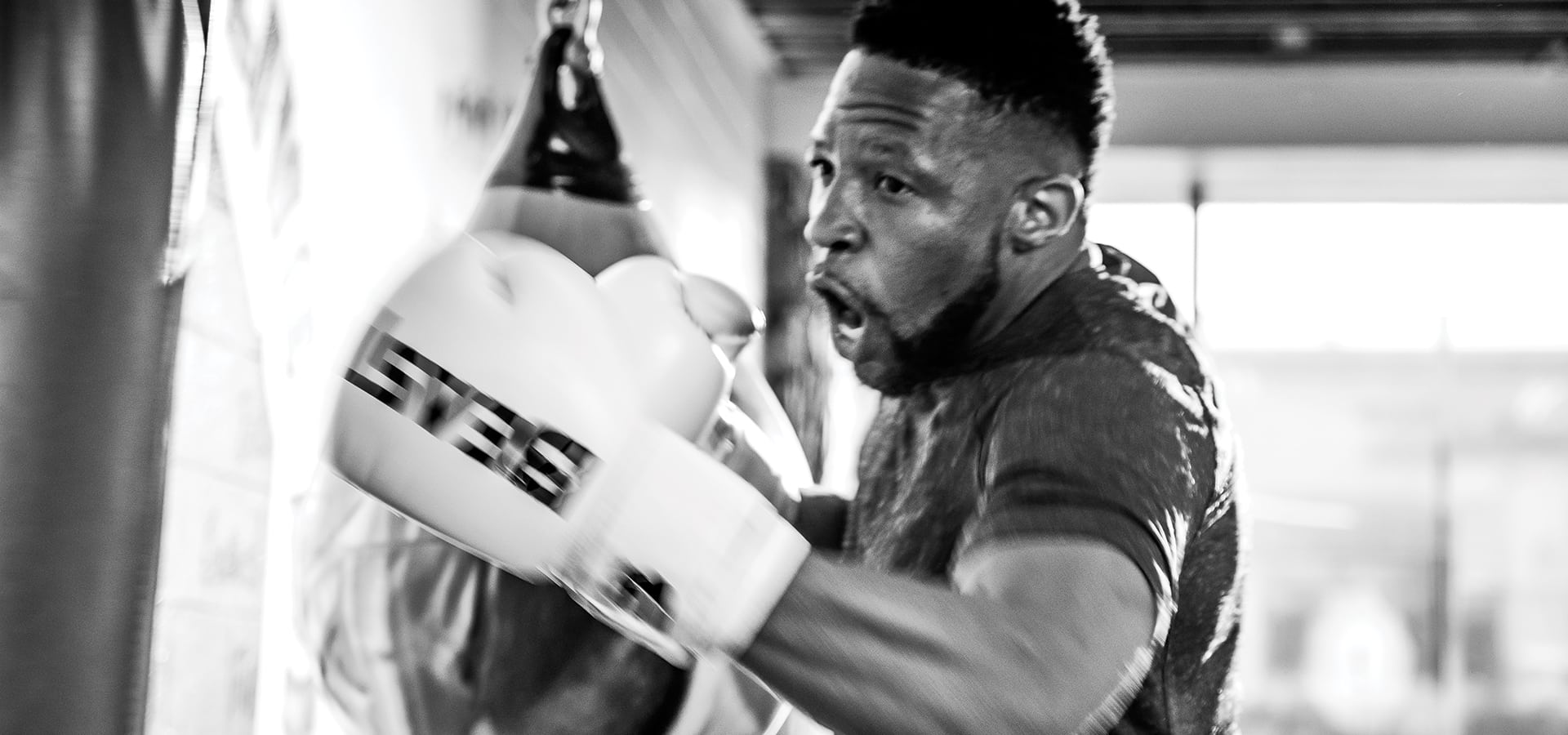
Most of all, Cedric is grateful for his wife, Barbie. He was taken by her kindness and spirituality, and she encouraged him to pursue his dreams. He branched out into the fitness world and became involved in the large community Beach Body, where he worked alongside the best in the industry.
For eight years he helped them create programs and videos, gaining extensive knowledge in both fitness and nutrition. However, after the 2008 financial crash, he found himself in another tough spot—except this time it wasn’t just him. He had a wife and baby girl to take care of too.
“My wife gave me the courage to go and do the fitness thing on my own. She gave me the boost I needed,” he remembers. “I started training people for free in Inglewood, and I still train many of those same people today. It grew from three people to 20 people, and then pretty soon I had to do my training sessions in the parking lot of The Forum to accommodate all the bodies. Unfortunately, I found myself in a tough position because all the people I was training couldn’t afford to pay.”
“Sweat comes down regardless of who you are. When you work hard, sweat doesn’t care if you are black or white, what your sexual orientation or your religion is. Sweat says that if you work hard, I am coming down.”
His luck changed through meeting some influential people in the fitness industry like trainer Tommy Cassano and dancer Flow—both deeply rooted in the South Bay. Cedric started picking up a substantial clientele base. While he still wasn’t making the income he desired, he had the tenacity, the motivation and the “no-quit” mindset to get there. He was determined to make this dream happen. Another act of kindness was on its way to help.
Keeping the acting dream alive, Cedric crashed an audition—a role that required a real boxer. He didn’t think much of it because he didn’t hear anything afterwards, but three months later they called him back for another audition in Pittsburgh.
The whole project was quite secretive, so they flew him out without him knowing anything about the movie or who was in it. After he arrived, Cedric was asked to wait in a room to meet the lead actor. Jake Gyllenhaal entered the room and said to Cedric, “I saw your audition tape. You are a special guy.”
While still reeling from that compliment, in walked 50 Cent, Forest Whitaker and the Academy Award-winning director Antoine Fuqua. At that moment, Cedric realized this was major. He spent three months on location shooting the movie Southpaw and loved the experience. It was difficult to be away from his wife and (by that time) two daughters, but it afforded him the opportunity to pay off his debt and buy a home.
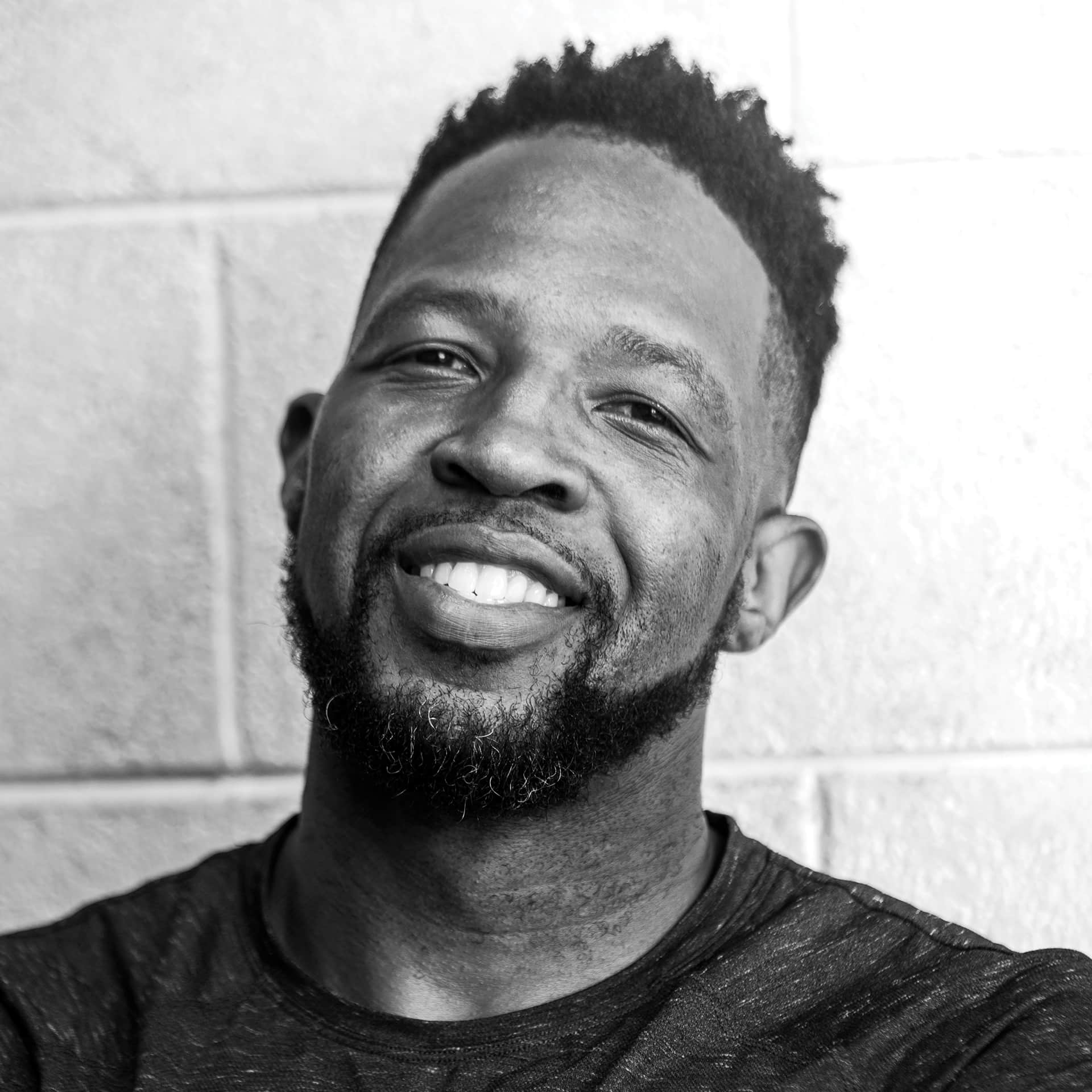
Upon returning to the South Bay, he received the sad news that the gym where he had been working was going out of business. The owner approached Cedric and handed him the keys, giving him the gym. Cedric couldn’t believe it.
He and Tommy Cassano partnered and took over. They named it Beastie, and today it is a Manhattan Beach boxing gym offering all sorts of workouts from circuit training to boxing. It just takes one class with Cedric to be hooked; his passion and energy are contagious and highly motivating. Cedric’s approach is to use fitness to elevate both body and mind to a whole new level.
“Fitness can make you feel like a superhero. You can always do more than you think you can; you just have to put in the effort,” he says. “The gym is struggling right now [during coronavirus lockdown] just like everyone else, but I am hoping and praying that we make it through.”
Always looking for ways to help others, Cedric launched his beloved foundation B Moved with the primary goal of helping underserved kids. “We try to motivate them through fitness and positive thinking. I really believe that changing your entire future is possible with that as your base. It doesn’t matter their circumstances; I want to be there for those kids. Every kid I have met is wonderful … with hope for a better future. Often they’ve just had a bad start, but I have seen these kids bounce back and fight to be successful. Sometimes all that takes is someone to say, ‘I got you.’”
Cedric also goes into detention centers, shelters and onto the streets helping people dealing with homelessness. Even when COVID-19 hit, he was still going under bridges in Downtown L.A., handing out supplies and food to the homeless. Cedric wants to help bust the myths and negative association with homeless people.
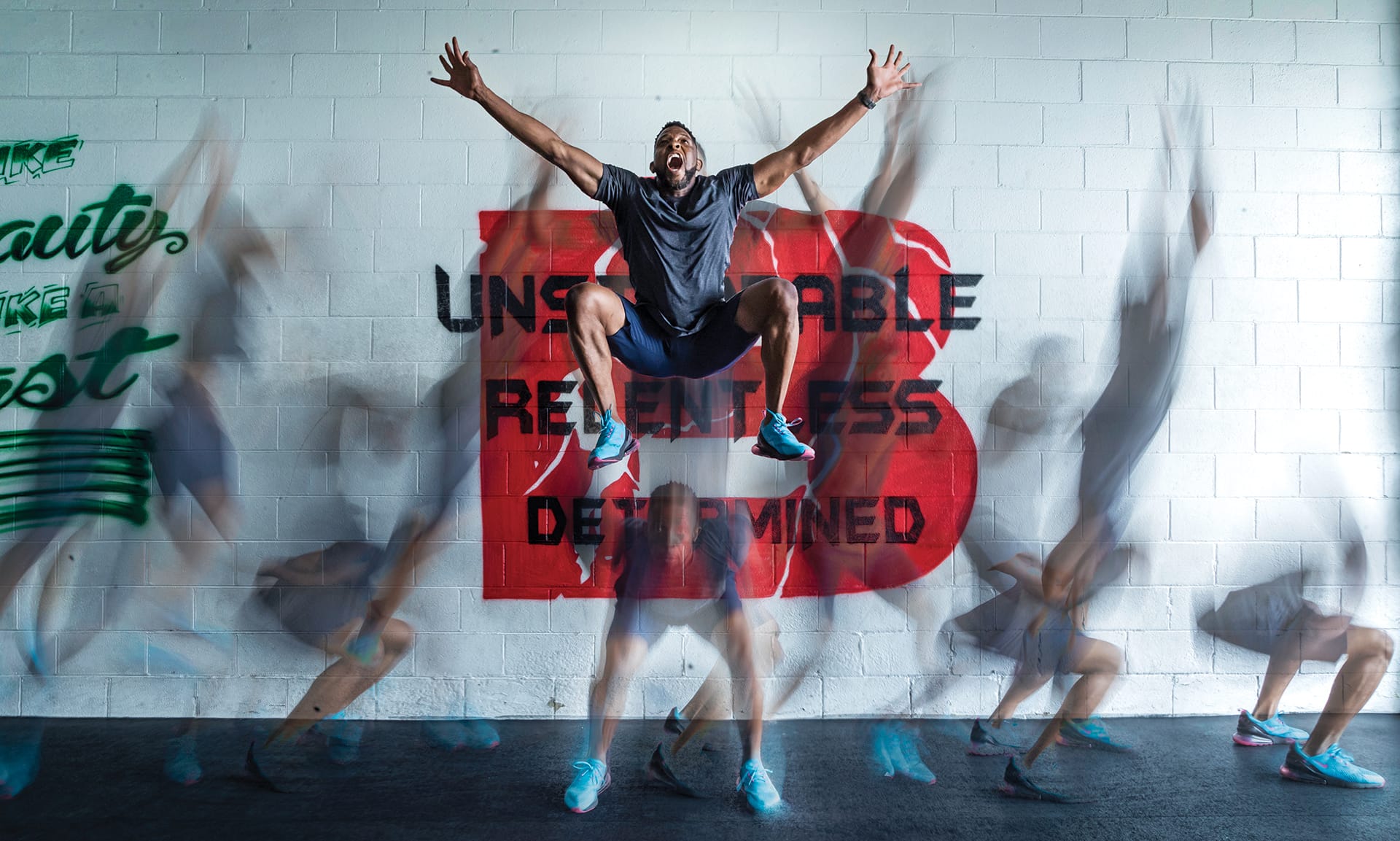
“Sometimes homelessness is not their fault; it can just be unfortunate circumstances. That was me. I was homeless because things didn’t work out for me. During COVID-19, homeless people are in even greater need because people are scared to go near them. So I put my mask on, go out there and do my best to help them. People are always grateful for anything you can do.”
Cedric’s next goal is to raise $200,000 to build the first Beastie community center. It will offer a safe place where kids can exercise with state-of-the-art equipment, learn on computers and be tutored. The center will have a fridge stocked with food and even offer beds for abused children who need a safe place.
“With all the injustices and brutality going on, my workouts can be a kind of haven—they have no judgment,” he says. “Sweat comes down regardless of who you are. When you work hard, sweat doesn’t care if you are Black or White, what your sexual orientation or your religion is. Sweat says that if you work hard, I am coming down. And this is the belief that I want to give to kids, especially those who are less fortunate—that your hard work can pay off.”
Cedric’s idea is to bring underserved kids together with fortunate kids so they can interact, connect and learn from each other. “I want all kids to feel a responsibility to help others. If we raise a compassionate generation like this, we won’t ignore those less fortunate.”
He continues, “I hate some of my life experiences. I come from the South, I have experienced violence and I have witnessed some terrible things. But I think most of the good things that have happened in my life are because I always try to treat people right. I always have a smile on my face. God has truly blessed me.”






